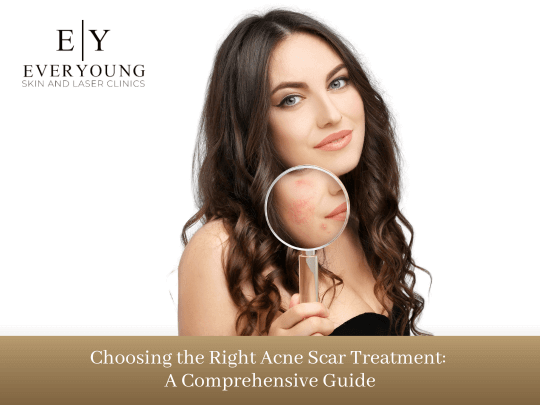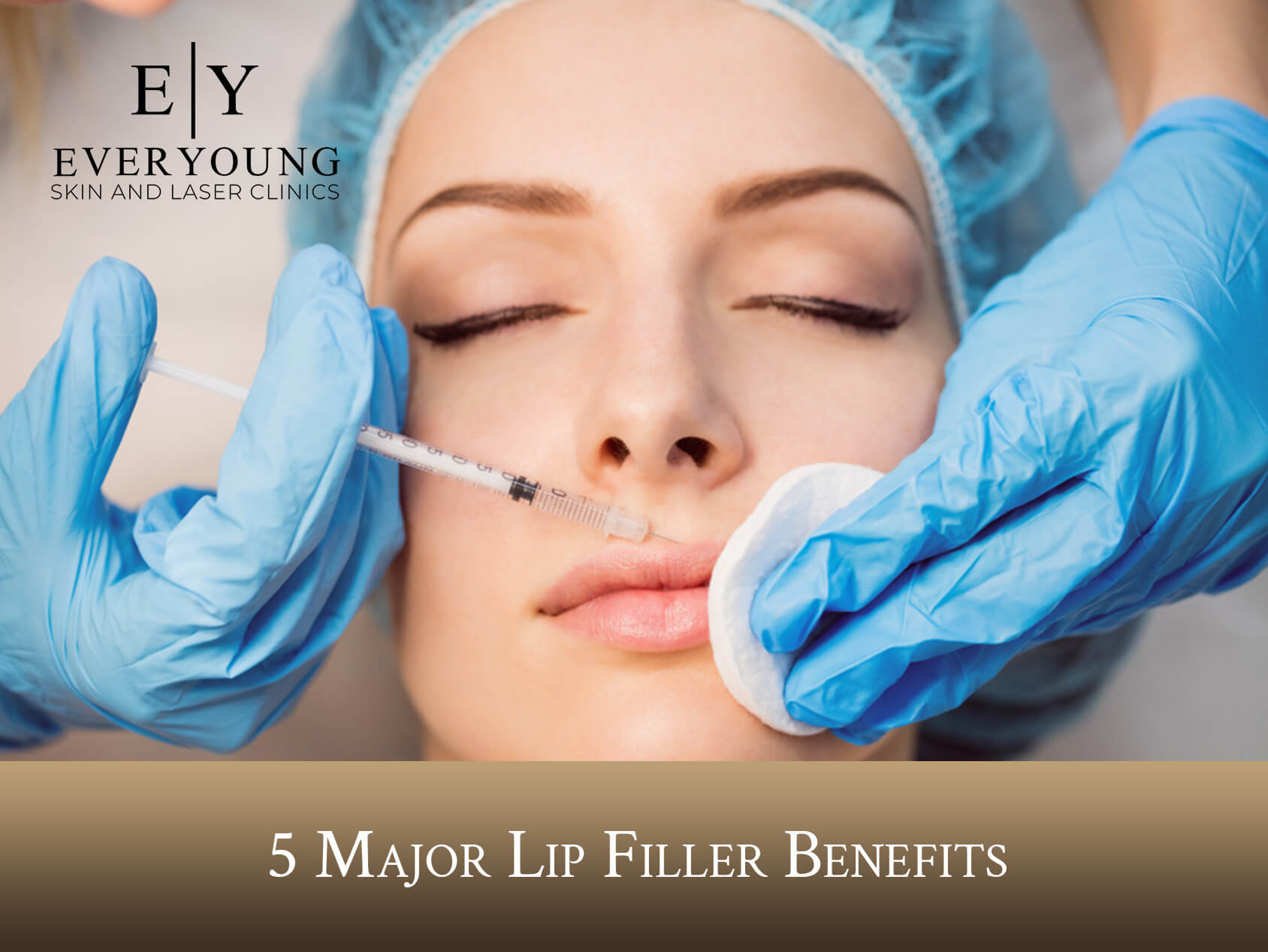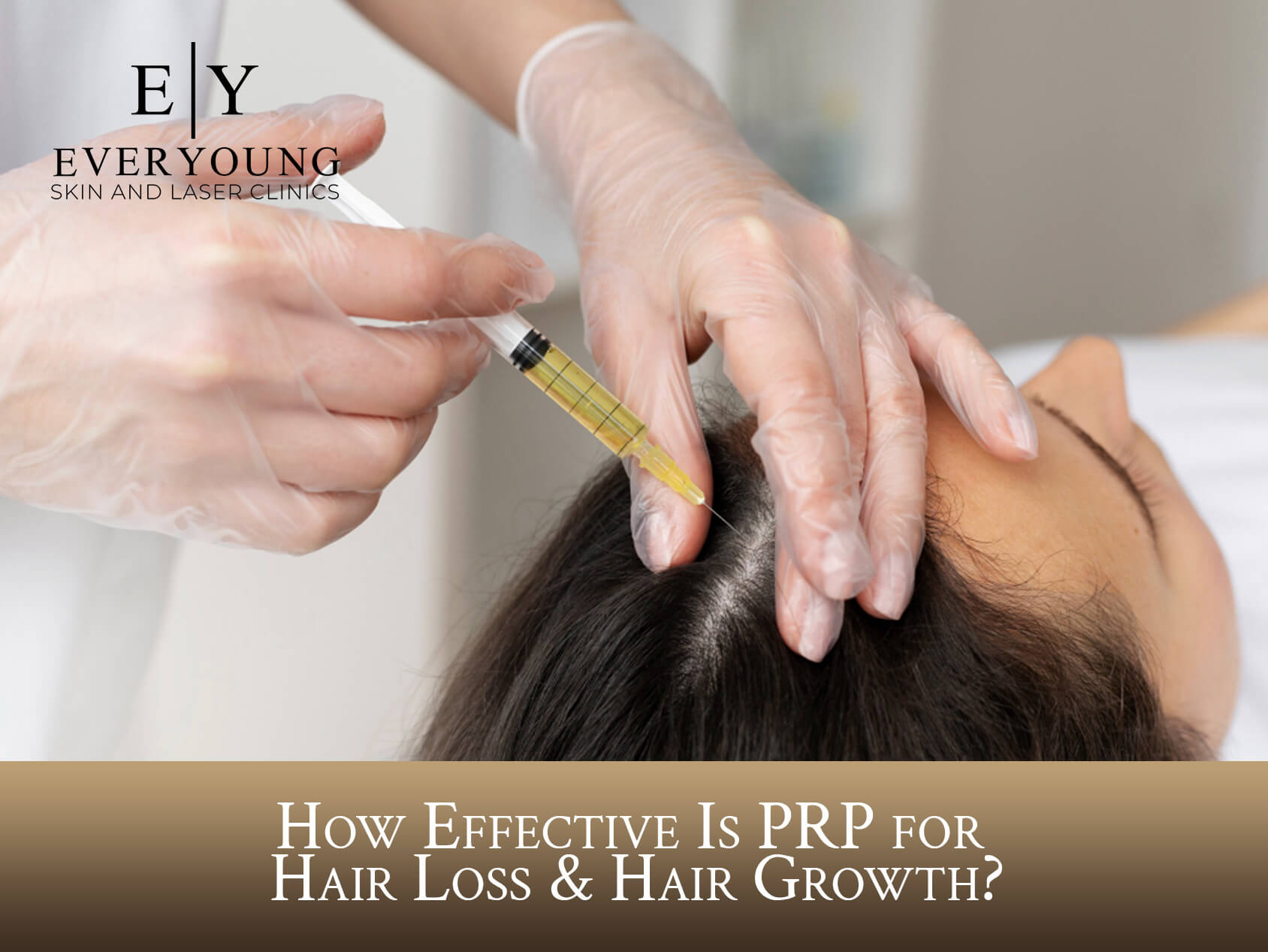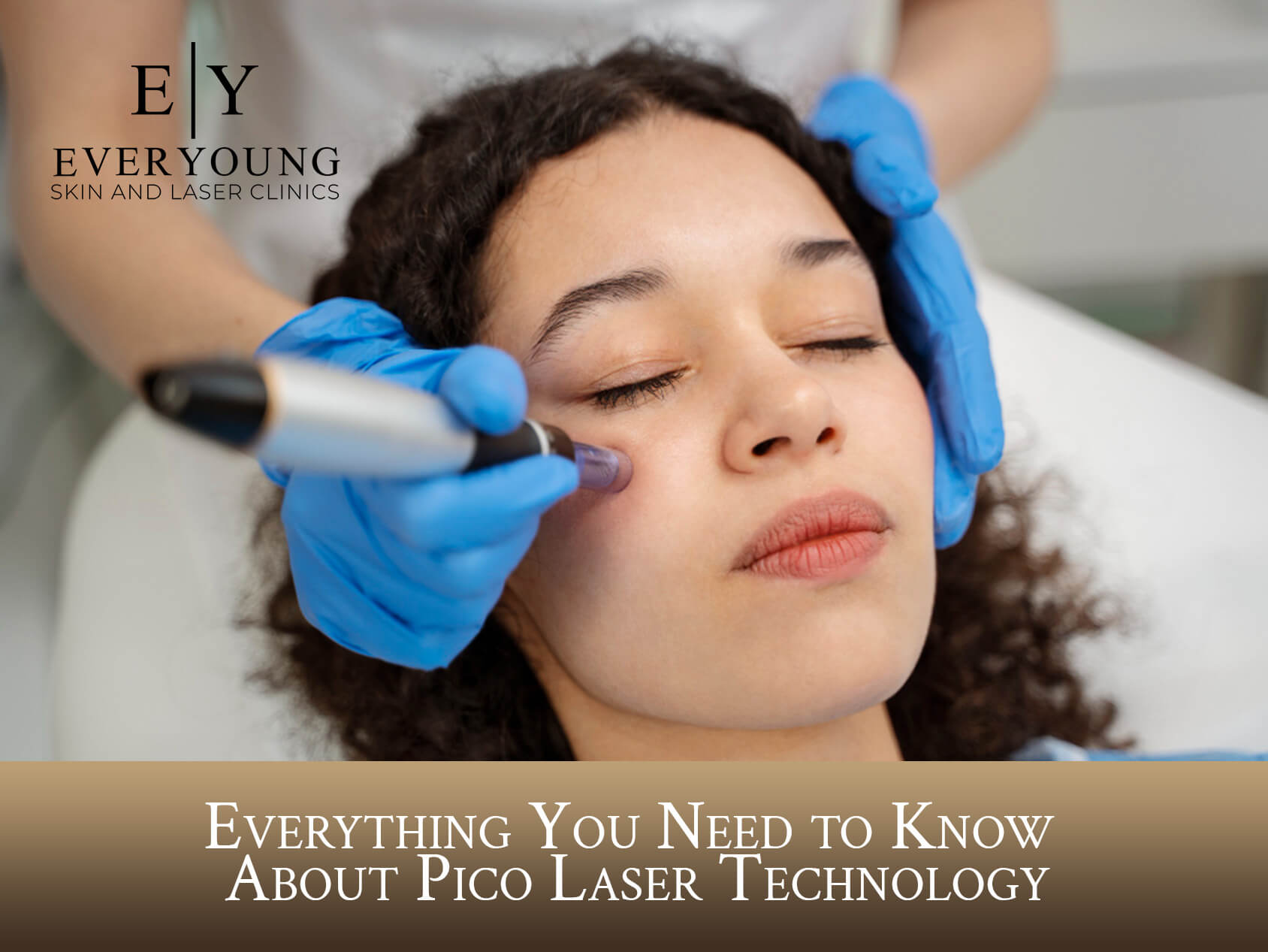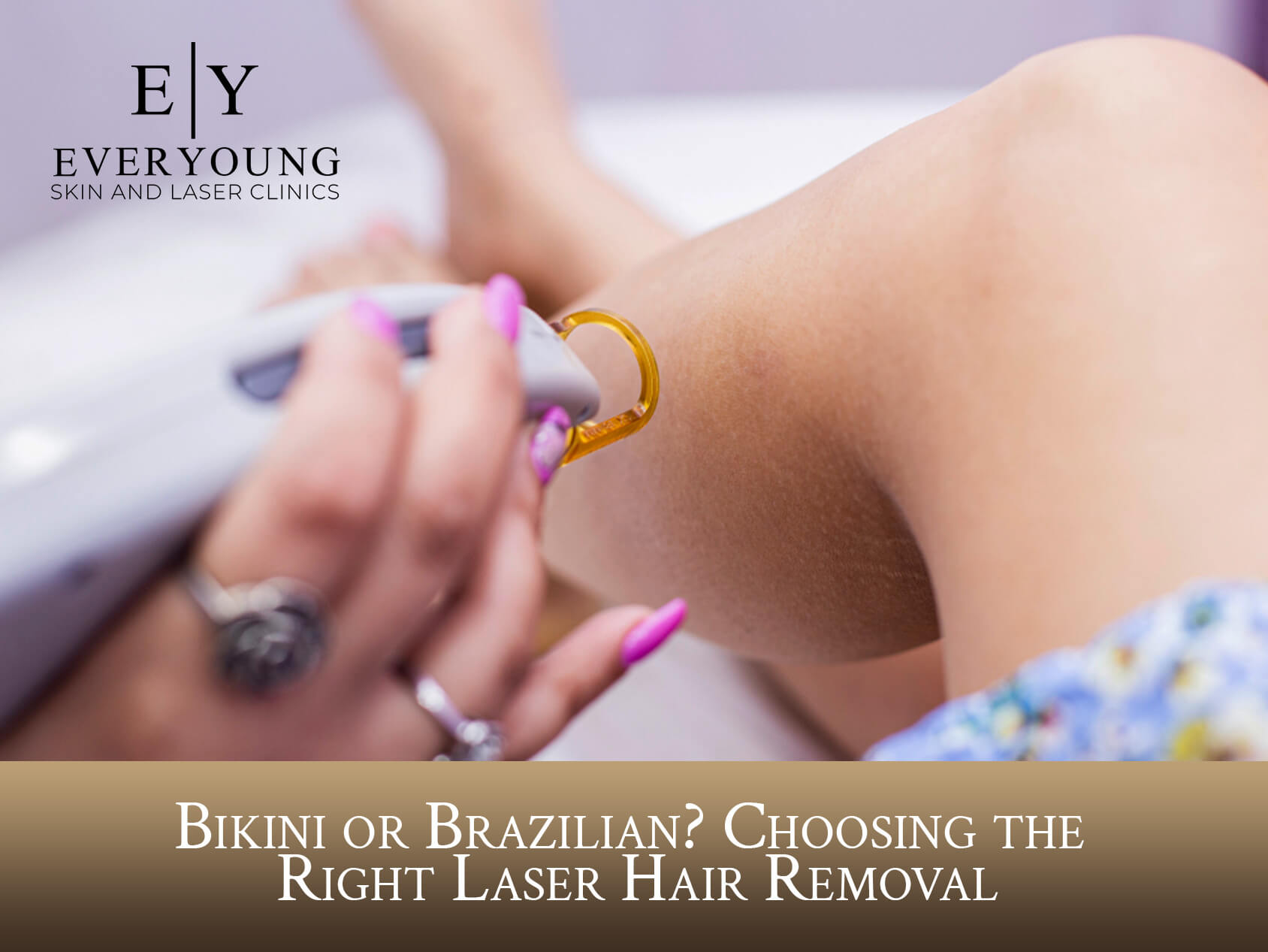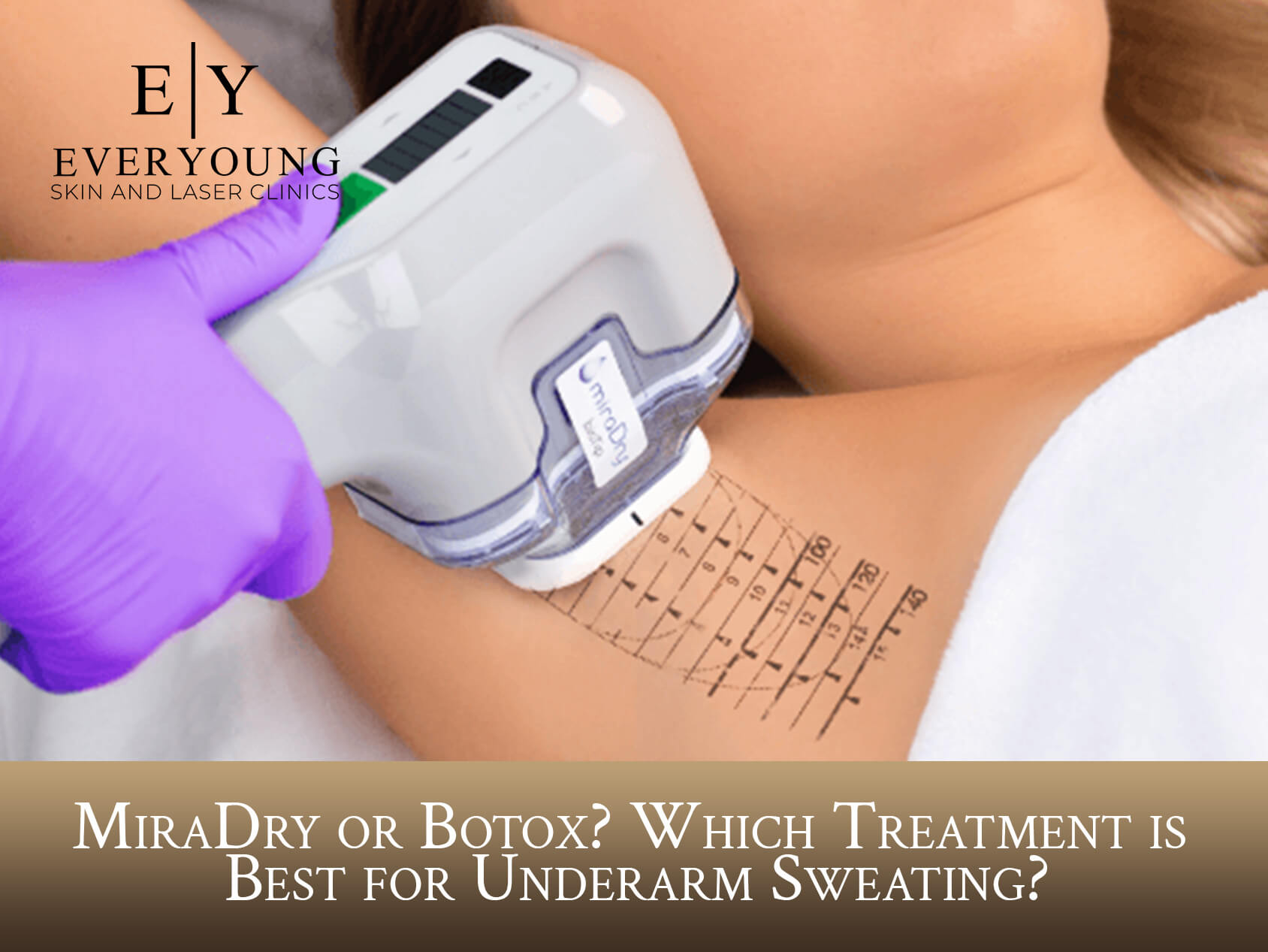Almost everyone will deal with some form of acne in their lives. Acne is usually an issue we associate with teenagers, but it can last well into adulthood and occur anytime. Acne can range from mild to severe. If you’ve ever dealt with stubborn acne, you’ll know how it can shatter a person’s confidence. It should be a relief once it finally clears up; however, you might be left with unsightly acne scars. Permanent scarring can be heartbreaking after dealing with acne for so long. Fortunately, there are a variety of acne scarring treatment methods available. If acne scarring affects your confidence, you’ve come to the right place. We will help you choose the right acne scar treatment in this comprehensive guide.
What Causes Acne?
First, let’s start by talking about acne. What is it, and what causes it? Acne is a skin condition that occurs when the hair follicles or pores become clogged with oil or dead skin cells. Acne can take various forms, including whiteheads, blackheads, pimples, small red bumps, and painful lumps under the skin. Acne usually appears on the face, upper back, chest, or shoulders. It can be caused by hormones, which is why it tends to be prevalent among teenagers and young adults, but acne can affect people of all ages.
How Can Acne Be Prevented?
Again, we will likely all experience some form of acne. From a pimple here and there to a persisting issue, it’s nearly impossible to avoid completely. The best way to prevent acne is to keep your face clean. Regularly washing your face with a gentle, non-abrasive cleanser, such as one containing salicylic acid, can help prevent breakouts. Avoid touching your face, and don’t go to bed before washing off any makeup. Stay hydrated and keep your skin moisturized. This helps to prevent your body from signalling that your skin’s oil glands need to produce more oil.
These are helpful tips, but sometimes it seems like no matter what we do, acne can be stubborn and persistent. If over-the-counter methods aren’t helping to clear your acne, you may want to see a dermatologist and look into different treatment options.
How Can I Prevent Acne Scarring?
Persistent acne can scar the skin. If you’re currently struggling with acne, let’s discuss a few things you can do to help prevent scarring:
Don’t Squeeze
It can be tempting to pick at, pop, or squeeze your pimples. Try not to! Not only can continuously touching your face worsen your acne, but squeezing your pimples extends the healing process and increases your chances of leaving a permanent scar.
Reduce Inflammation
Avoid doing anything to irritate your skin further. Don’t use harsh skincare products, and avoid aggressive scrubbing. Large, inflamed acne is more likely to leave a scar.
Treat Acne
The earlier your acne is treated, the less likely it is to leave permanent scarring.
Like acne, some people are more prone to scarring than others. Unfortunately, no matter what you do, you might be left with scars.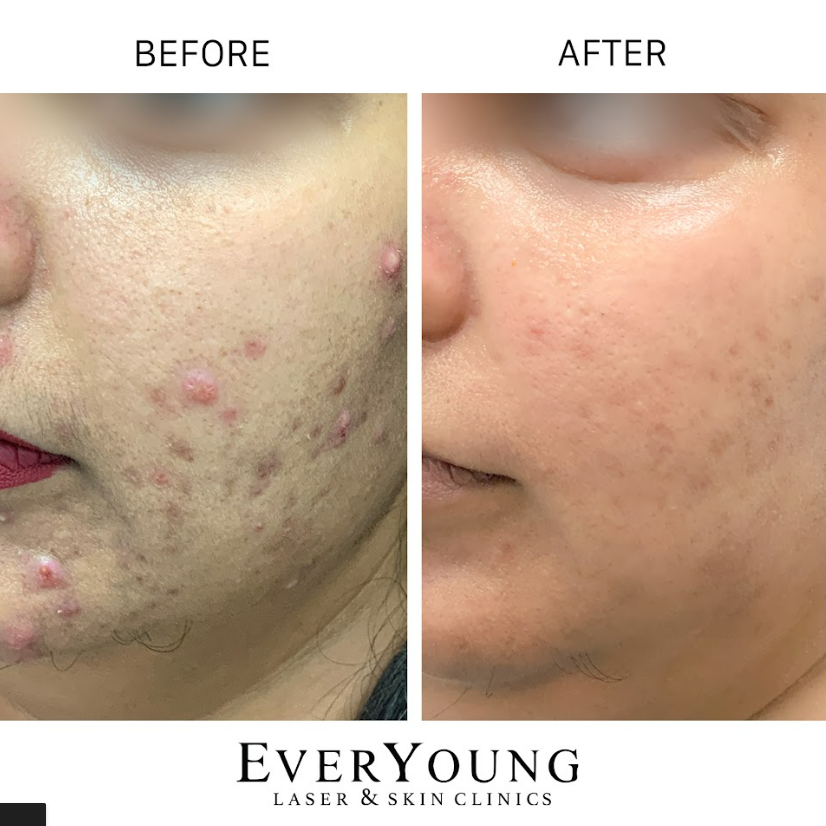
What Do Acne Scars Look Like?
Scars left behind after a bout of acne can come in several forms. Acne scars can be:
-broad, box-like depressions with a sharply defined edge, known as boxcar scars
-small holes in the skin known as icepick scars
-rolling scars of varying depth, with sloping edges that make the skin appear wavy and uneven
-raised red patches on the skin’s surface, known as hypertrophic scars
-dark spots that remain after the acne clears, known as post-inflammatory hyperpigmentation.
What Are Some Acne Scar Treatments?
There are a variety of acne scar treatment methods available. The type of treatment you choose might depend on your skin type and the type of scarring that you have. When administered by an expert healthcare provider, these treatments are safe and often show better results than home treatments. Let’s take a look at some acne scar treatments:
Laser Resurfacing
Several laser treatments can be used to reduce the appearance of acne scars. In a nutshell, these treatments work by stimulating new, healthy skin growth. Fractional laser resurfacing is considered one of the best treatments for many acne scars. As the name suggests, only a fraction of the skin is treated, targeting the imperfections while stimulating collagen and elastin – the body’s building blocks for youthful-looking skin. Fractional lasers are associated with a shorter recovery time since healthy skin is not harmed during the treatment. ProFractional laser resurfacing, on the other hand, is an ablative laser that reaches deep damage within the skin, producing dramatic results. This option is great for stubborn icepick scars or more severe acne scars.
EverYoung Medispa offers a variety of other laser treatments to treat active acne, reduce the appearance of acne scars, and treat other dermatological concerns. These include the Spectra Peel and Thermascan. These treatments use heat to break up the damage within the skin to clear imperfections and stimulate the growth of new collagen.
Microneedling
Microneedling is a minimally invasive procedure that utilizes thin needles to make small, controlled wounds on the skin. These tiny injuries encourage your skin to produce more collagen, which heals and smooths the skin, reducing the depth of any atrophic (depressed) acne scars. Microneedling might be a better choice than laser therapy for those with dark skin tones. Please note that microneedling shouldn’t be used on active acne as it can irritate existing blemishes and cause them to become inflamed. It’s best to wait until your acne clears up before scheduling this treatment.
Dermal Fillers
Fillers are typically used to add volume to a desired area. These injections contain hyaluronic acid, a naturally occurring substance in the body. Dermal fillers are usually used on the lips, cheeks, or jawline for a “plump,” youthful look. You might not associate fillers with acne scars, but dermal fillers can work to fill out any recessed areas, such as boxcar scars or rolling scars. Fillers work on all skin types.
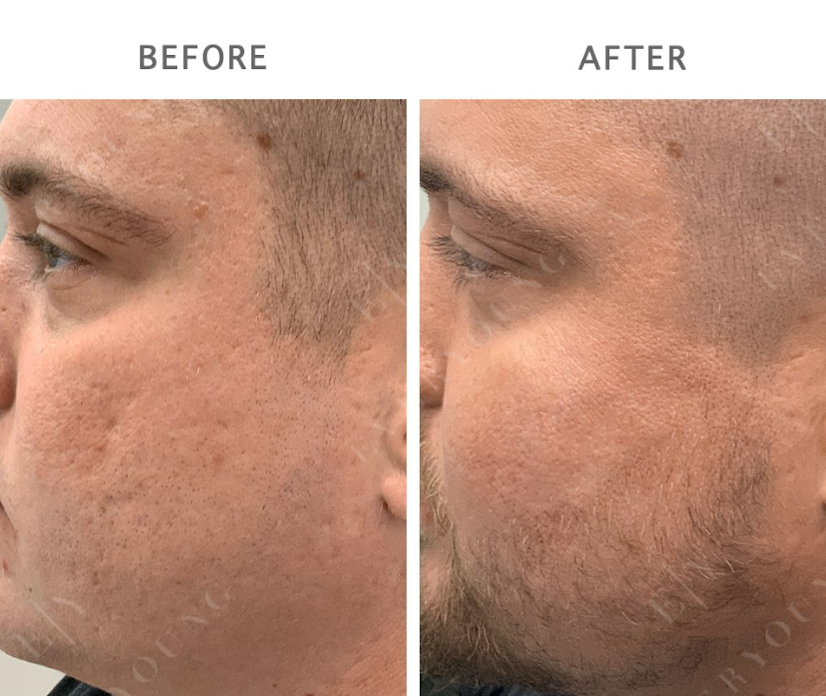
Chemical Peels
Chemical peels use a chemical solution to remove the outer layer of old skin, replacing it with healthy, fresh skin. Our skin is constantly healing itself, shedding old cells and forming new ones – this treatment helps speed up the process of cell regeneration. The new skin will be smoother and less scarred in appearance. Chemical peels can be customized to address the depth of the damage, improve the skin’s overall tone and texture, and help treat active acne. Chemical peels are a good option for both sunken scars as well as dark, hyperpigmented spots or any discoloration left behind by a breakout.
Dermabrasion
Microdermabrasion is an exfoliating treatment that can help fade surface imperfections such as scars and dark spots, as well as help manage acne by clearing out the pores. This treatment uses a minimally abrasive tool to gently “sand down” the outer layer of skin, which can make any sunken scars appear more shallow. Not only does dermabrasion help to treat acne scars, but regular treatments promote a healthy, radiant complexion. This treatment is great for all skin types, with no downtime involved. Your skin might appear slightly flushed after treatment, but this subsides quickly.
Dealing with persistent acne is frustrating. Having to endure noticeable scars left behind by your breakouts can be devastating. Fortunately, there are many treatments available to both manage acne and reduce the appearance of acne scarring. The treatment you choose might depend on the severity of the issue and the types of scars you have.
If you are still determining which treatment is best for you, or have questions or concerns, our highly skilled professionals at EverYoung Laser & Skin Clinic are here to help you meet your cosmetic goals. Don’t hesitate to contact us today.



